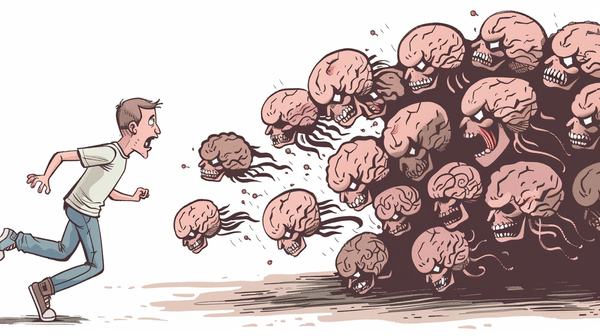Engaged Reading Time - Issue #31
Just as I was finishing up this newsletter, I learnt the terribly sad news that a journalist I knew, Lyra McKee, was shot dead in Derry last night. She was an inspiring, investigative journalist who was fearless and deeply embedded in the communities she reported on. What a terrible loss.
The End of the Like?
I've often noted that the story of the last 20 years in online community has been progressively making participation easier. The older ones amongst us might remember the hassle of downloading a Usenet client to join in discussions held in newsgroups, and the even older might recall dialling in to BBSes.
The genius of Facebook and its ilk has been in reducing the interaction you need to a single button press: Like.
(Well, a range of reactions, really, but the Like is iconic.)
Short of mind-reading tech (which Zuckerberg was dumb enough to discuss on stage recently…) It literally can't get any easier, can it?
Well, all the signs are that we're starting to reverse direction. As you'll see in the links below, Instagram is experimenting with removing Like from posts. There's growing evidence that the ludic loops and dopamine cycles that drive social media addiction are great for growth — but terrible for the users.
That'll be why the UK government is proposing removing these easy engagement figures from teenagers' posts (again, see the links below). I think this is a smart move. The teenage years, in particular, are a vulnerable time as young people share their identity and self image. And the Like - or absence of them - in social media are an additional burden they could do without. A neighbour's daughter is going through this now, and it's troubling to watch.
For us, who work in this space, we need to start preparing ourselves for a word where these simplistic metrics are less available - or gone. How then do we measure effectiveness in social media? You don't need to be able to answer that question now - but you'll need to be able to do so soon.

Instagram hides Like counts in leaked design prototype
This is a fascinating experiment. You can see how many Likes you get — which doesn't completely remove some of the harm Likes bring — but nobody else can. That removes the social proof element - and the competition. It will reshape Instagram if they do this. And I hope they do.

Under-18s face 'like' and 'streaks' limits on social media - BBC News
The UK's data watchdog proposes restrictions on Facebook, Instagram and Snapchat among others. It's interesting to see the UK government leading the way on this. Not all their proposals are smart - but I think this one is.

Lush is the new anti-social gangster, and for good reason
This is one to watch. Lush has withdrawn from conventional social media channels. PR stunt, or the beginnings of a trend? How many businesses are ploughing ahead with social, without serious analysing return?
Moderating Everything

The Punishing Ecstasy of Being a Reddit Moderator
We don't look outside journalism nearly enough for lessons on community management. We had great success back in my RBI days through pulling in people from game community management. Much to learn from here.

Facebook Is Finding Out How Hard It Is to Clean Up Toxic Content
Facebook has benefited hugely from the web's ability to build scale, without imposing the costs of scale that physical businesses create. Now, it's finding out that those costs do exist - and it has to pay them.

Organize the Content Moderators
After Casey Newton's exposé of how badly Facebook's moderators are treated - is it time for them to unionise? And is it time we started treating this as a valued skill?



